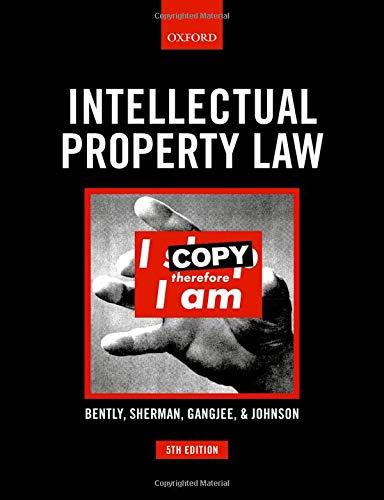Question
Spinner Ltd process raw cotton into cotton fabric at their factory in Yorkshire. The cotton fabric is then supplied to various manufacturers around the UK.
Spinner Ltd process raw cotton into cotton fabric at their factory in Yorkshire. The cotton
fabric is then supplied to various manufacturers around the UK. Spinner seeks your
advice on two recent problems.
On 1st March Spinner contracted to buy 100 tonnes of raw cotton from importers Fibre Ltd,
who are based in Liverpool, at a price of 150 per tonne. Delivery of the total order was to
take place by 1st April. Spinner required the cotton by this date to process it into fabric and
fulfil customer orders on 8th April. On 21st March Fibre delivered 70 tonnes of cotton to
Spinner's factory. Spinner demanded the other 30 tonnes and were told they would be
delivered at the contract date of 1st April. Spinner insisted that Fibre take the 70 tonnes
away and return on 1st April with all 100 tonnes. On 1st April Fibre failed to deliver any
cotton. On 4th April, without contacting Fibre, Spinner bought 100 tonnes of raw
cotton from an alternative importer, paying the market price of 175 per tonne. On
5th April Fibre Ltd attempted to deliver 100 tonnes of raw cotton but Spinner refused
to accept delivery. Spinner and Fibre are both claiming the other party has breached
the contract.
In a separate contract, Spinner agreed to purchase a new computerised weaving machine
from Weaver Ltd, a company based in Manchester, for 50,000. Spinner requested
various modifications to be made to Weaver's standard machine to make it more efficient
for weaving cotton. The contract between the parties was made on Weaver's standard terms
and conditions, which Spinner did not read or negotiate. One of the terms stated that
'Weaver Ltd's liability for the product supplied is limited to replacement or repair at Weaver
Ltd's option. Any other remedy, including rejection of the goods and damages, is hereby
expressly excluded.' The machine stopped working three weeks after purchase and was
unusable. Weaver offered to examine and repair the fault. Spinner agreed to the repair and
Weaver supplied a replacement machine, free of charge, while the repairs were carried
out. The repaired machine was redelivered to Spinner Ltd, but three months later developed
the same fault again. Spinner Ltd now want to reject the machine.
Advise Spinner Ltd on the legal position, and any potential remedies they may be entitled to,
in both incidents.
Step by Step Solution
There are 3 Steps involved in it
Step: 1

Get Instant Access to Expert-Tailored Solutions
See step-by-step solutions with expert insights and AI powered tools for academic success
Step: 2

Step: 3

Ace Your Homework with AI
Get the answers you need in no time with our AI-driven, step-by-step assistance
Get Started


